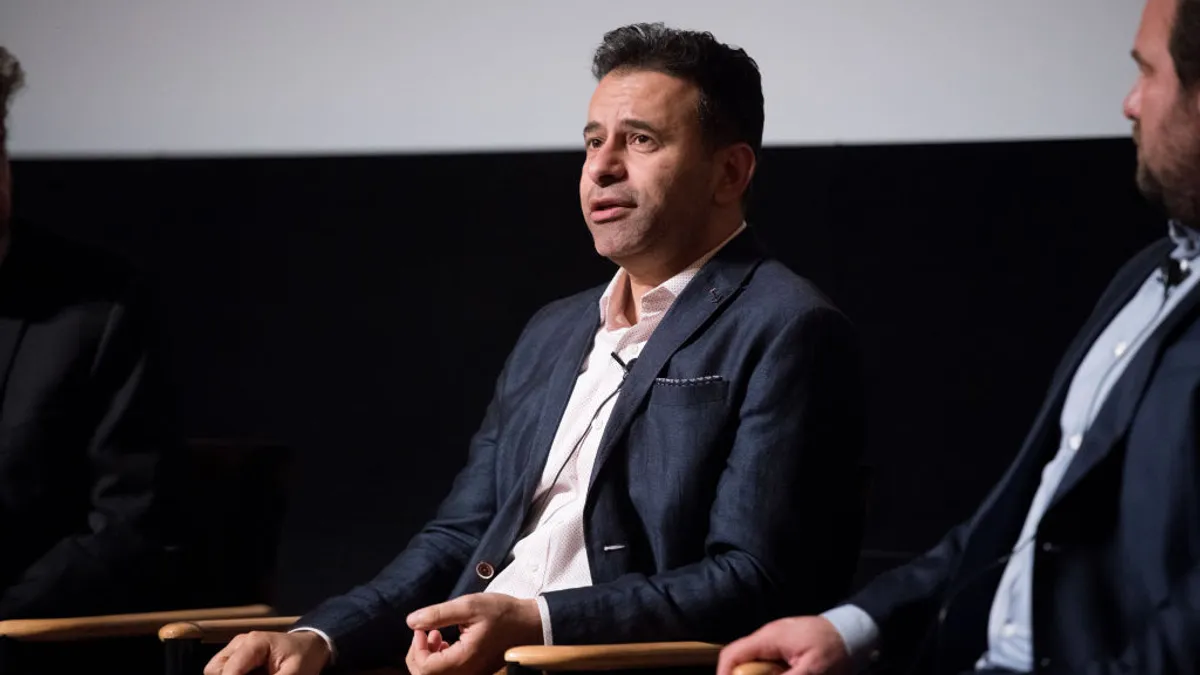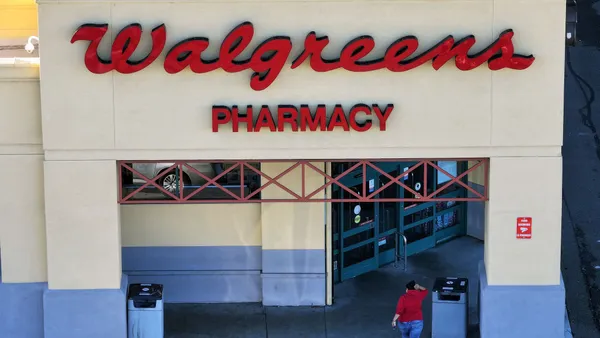Pharma’s Role in the Community
 John Damonti, President of the Bristol-Myers Squibb Foundation and VP of Corporate Philanthropy at Bristol-Myers Squibb, talks about how his company and other pharmaceutical companies can provide relief during disasters, such as Hurricanes Harvey and Irma.
John Damonti, President of the Bristol-Myers Squibb Foundation and VP of Corporate Philanthropy at Bristol-Myers Squibb, talks about how his company and other pharmaceutical companies can provide relief during disasters, such as Hurricanes Harvey and Irma.
PV: Why do you think pharmaceutical companies have a responsibility for disaster relief?
Damonti: Every industry has a role to play and an obligation to assist, including retail, energy, and financial services companies. They are responding to the needs of their customers and employees who are in need of assistance. As socially responsible companies, we each have a unique role we can play based on our industry. Pharmaceutical companies have the opportunity to donate much needed medicines, and we at BMS have an obligation that we take seriously to help those who are in need of our products. It can be life critical for those who are impacted and displaced by disaster. We see this as an opportunity to make a difference.
PV: What is the role of the BMS Foundation?
Damonti: As our company has policies and programs about how we make our drugs available to vulnerable populations and those who cannot afford them, the Foundation focuses its efforts to building community care models that can help ensure that vulnerable populations can benefit from medical innovation whether high tech or low tech. What happens in the community in many geographies is as important as what occurs in a clinic or hospital ,and we know that it’s in the community that we can engage patients in care in the first place.
We want to build models of care that break down the barriers to care for people around the globe such as lung cancer in Southeast United States and cancer and HIV in Africa. As a company, we discover innovative medicines for unmet medical need, and we want to ensure that people who live in very challenging geographies and who are at high risk can still benefit from medical innovation.
One of our bigger initiatives launched in February of this year began to take a look at noncommunicable diseases in sub-Saharan Africa where we’ve been working for 18 years on HIV and other co-morbid conditions. We’ve learned a great deal in those 18 years. People being treated for HIV are living longer and living healthier. But now we are seeing these patients dying from hypertension, diabetes, and cancer. We’re looking at the role we can play and take what we’ve learned on the HIV front and look at cancer in areas of high HIV prevalence.
Additionally, in February we announced that we are taking the model we created with our partners, the Baylor College of Medicine, the Texas Children’s Hospital, and five African nations, where we’ve created the largest HIV pediatric network in the world. We’re now going to leverage the training models, infrastructure, and agreements with the governments to focus on children who are dying in large numbers from pediatric cancers and blood disorders. In the United States, 80% of children who are diagnosed survive; in sub-Saharan Africa, 90% of those children die and they’re dying from the same reason they were dying from HIV back in the early 2000s and that is because there is an insufficient number of people trained to treat these children. We are going replicate what we did in pediatric HIV and train thousands of healthcare practitioners and put the infrastructure in place to sustainably treat pediatric cancer.
PV: Surveys show the pharmaceutical industry’s charitable giving and philanthropic efforts are huge; why is this important?
Damonti: Pharmaceutical companies work to respond as aggressively as they can to address areas of health concern. A differentiator for our industry is our expertise in healthcare delivery and our ability to deploy those skills through our social responsibility programs.(PV)
~~~~~~~~~~~~~~~~~~~~~~~~~
BMS’s Hurricane Help
For Hurricane Harvey victims, BMS has donated medicines — including Coumadin, Glucophage, and Plavix — with a wholesale value of $10 million to a network of the company’s global relief partners to support their efforts in Texas.
In addition, the Bristol-Myers Squibb Foundation is donating $250,000 to Americares, Direct Relief International, and the American Red Cross. This support provides access to basic supplies and supports the company’s relief partners.
The company is also matching U.S. and Puerto Rico employee donations to all eligible organizations working on the relief efforts. The organizations have been vetted by the foundation.
For Hurricane Irma victims, the BMS Foundation has donated $100,000 to the Central Florida Red Cross in support of the Tampa-area relief efforts. The company has also donated much-needed medicines with a wholesale value of $413,000 to aid Irma-impacted communities.
To support relief efforts for Hurricane Maria, the BMS Foundation has donated $150,000 to the Puerto Rico Red Cross, and $50,000 each to its medicine relief partners Americares and Direct Relief International.
In response to the earthquake in Mexico, the Foundation donated $50,000 to the Mexican Red Cross. Bristol-Myers Squibb is shipping $29,000 in requested medicines.
Editor’s Note: Please see the Upfront section of this publication for information about other company efforts to help those impacted by Hurricanes Harvey and Irma.











